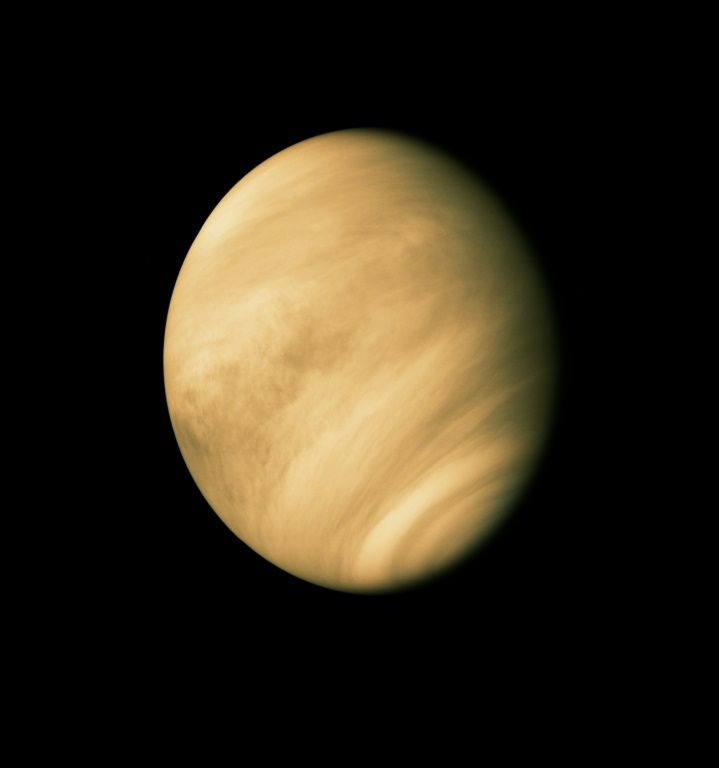Venus A 'Russian Planet,' Roscosmos Chief Claims As Space Agency Plans Mission
KEY POINTS
- Dmitry Rogozin referred to Venus as a "Russian planet"
- He said Russia is considering its own mission to Venus
- A recent study suggested the planet may be harboring signs of life
Is Venus a Russian planet? The chief of Russia's space agency seems to think so.
Dmitry Rogozin, the head of Roscosmos, has referred to Venus as a "Russian planet" while discussing the possibility of life on the planet Tuesday.
Earlier this week, a team of researchers detected phosphine in the atmosphere of Venus. Although the planet has long been thought to be inhospitable, the findings suggested that microbial organisms could reside within the atmosphere. This means life could exist on Venus.
This generated a lot of buzz in the scientific community and the Breakthrough Initiatives, supported by Russian-born billionaire and philanthropist Yuri Milner, was quick to announce that the program would fund a study on the possibility of the presence of primitive life on Venus.
Speaking to mediapersons during the HeliRussia-1010 exhibition Tuesday, Rogozin, who is known for his harsh anti-Western rhetoric, said the exploration of Venus is on the agency's agenda. He said apart from a project dubbed "Venera-D," which is being developed in cooperation with the United States, Russia is considering its own mission to Venus, calling it a "Russian planet," Russian News Agency TASS reported.
"We think that Venus is a Russian planet, so we shouldn't lag behind," Rogozin said, TASS reported. "Projects of Venus missions are included in the united government program of Russia's space exploration for 2021-2030."
The news of Russia's Venus mission is not exactly new. Russian Space Research Institute Scientific Director Lev Zeleny told the outlet in May that the country had a Venus mission in the works.
In a statement released on Tuesday, Roscosmos director for science and advanced programs, Alexander Bloshenko, said it is only through contact exploration that actual "proof of life on Venus" can be obtained.
"Discovering chemical substances as possible chemical markers of life existence in Venus's atmosphere via remote astronomical observations cannot be considered objective evidence of life existence on the planet," Bloshenko said in the statement. "Credible scientific data on that matter can be obtained only via contact explorations of the planet's surface and atmosphere."
Although NASA's Mariner-2 was the first to fly by Venus in 1962, it was the Soviet Venera-7 spacecraft that was the first to make a soft landing on the Venusian surface in 1970, while the Venera-13 has so far kept its record of being the "longest active spacecraft" on Venus, having remained operational for 127 minutes. The Venera-9 also took the very first image of the surface of another planet when it landed on the Venusian surface in 1975.
"Notably, the USSR was the only country to conduct regular explorations of Venus using on-planet stations," the statement added. "A huge breakaway of the Soviet Union from its competitors in exploration of Venus contributed to the fact that USA called Venus a 'Soviet planet.'"
Other space agencies, including NASA, the European Space Agency and India's ISRO, are also planning future Venus missions. NASA is looking at two proposed missions – the DAVINCI+ mission to analyze the atmosphere of Venus and the VERITAS mission aiming to study the planet’s geological history. The ISRO's proposed mission, called Shukrayaan-1, will focus on the chemistry of Venus' atmosphere.

© Copyright IBTimes 2024. All rights reserved.






















